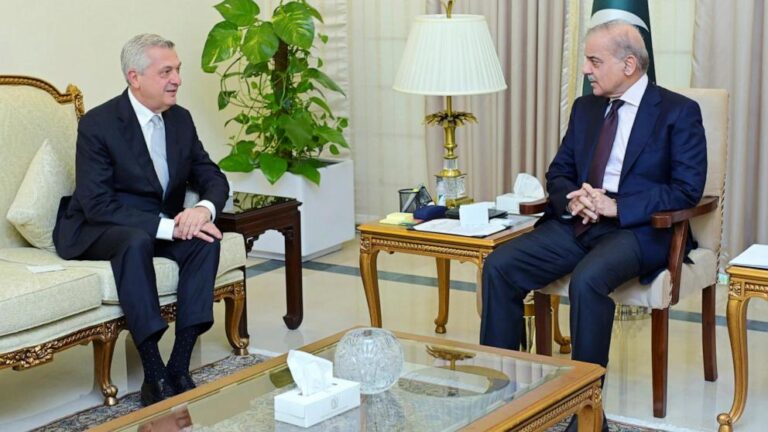Pakistan’s foreign ministry said authorities would expel hundreds of thousands more Afghans who have lived in the country for years, the latest in a months-long government crackdown on illegal immigration.
ISLAMABAD — Pakistan’s foreign ministry said Thursday it would expel hundreds of thousands more Afghans who have been longtime residents of the country, the latest step in a months-long government crackdown on illegal immigration.
Foreign Ministry spokesperson Mumtaz Zahra Baloch told reporters that this was the “second phase” of the “plan to repatriate illegal foreigners” and that those will be given identity documents called “Afghan citizen cards” to legalise their stay in Pakistan for a certain period of time.
An announcement about the measures will be made “at an appropriate time”, she told a weekly press conference in the capital, Islamabad.
Pakistan’s crackdown on illegal immigration has drawn widespread criticism from the United Nations, aid agencies and human rights groups.
An estimated 600,000 Afghans have returned to Afghanistan since the deportations began, with thousands being deported every day, but the pace of deportations has since slowed and appears to have stopped in recent months.
Following a visit by UN High Commissioner for Refugees Filippo Grandi on Wednesday, Islamabad announced it would extend the stay of 1.45 million Afghan refugees residing in the country.
During his visit, Grandi welcomed the Pakistani government’s moratorium on deportations.
But Baloch denied this was the case and said the anti-immigrant crackdown targeting those without valid documents had not been stopped. He said deportations were only aimed at those in Pakistan illegally and were being carried out in a “humane manner”.
She insisted that Afghan refugees living here had no need to worry as their stay had expired.
Pakistan has hosted an estimated 1.7 million Afghans over the years, most of whom fled during the Soviet occupation from 1979 to 1989. More than 500,000 people have fled Afghanistan since the Taliban took power in 2021, and thousands remain in Pakistan waiting to be resettled in the United States or elsewhere.
Baloch also called on the international community to speed up the relocation process for thousands of Afghans who fled the Taliban seizure of power, most of whom he said remain in Pakistan.
These Afghans were desperately waiting for their visa applications to be processed so that they could depart for the US, Canada, UK, Germany, Australia, Italy and several other countries.
Delays in resettlement have left these Afghans in a vulnerable position, struggling with economic hardship and lack of access to health care, education and other services in Pakistan.
Baloch’s remarks appear to have taken the Afghan Ministry of Refugees and Repatriation by surprise.
Abdul Mutalib Haqqani, spokesman for the Ministry of Refugees, said he had received word through official channels that the deportations had stopped. He said no Afghan refugees, with or without proper documentation, had been forcibly returned from Pakistan and there had been no reports of arrests in the neighbouring country in the past 24 hours.
Haqqani appealed to the Islamabad government to allow Afghans enough time to leave Pakistan in an orderly manner and to avoid any forced repatriations.
“Our second demand is that our Afghan brothers voluntarily return to their home country,” he said. “There is peace in the country now. The refugees should return to their home country.”

